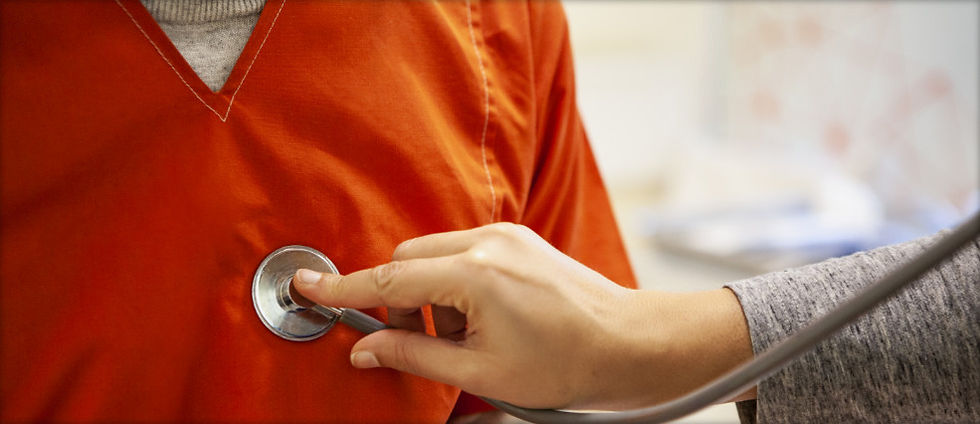Florida Jail, Prison, or Detention Center Inmates and Advanced Healthcare Directives
- Jail Notary Services

- Jun 18
- 3 min read
Updated: Jun 24
When families coordinate notary services for inmates in Florida, the focus is typically on urgent legal matters—such as power of attorney, custody arrangements, or inmate release forms. But an often-overlooked document can have just as much long-term impact: the Advance Healthcare Directive (AHD).
For individuals serving time in Florida correctional institutions, this directive can be critical, especially for those managing chronic illness, older age, or lengthy sentences.
What Is an Advance Healthcare Directive and Why Is It Important?
An Advance Healthcare Directive allows someone who is incarcerated to appoint a healthcare proxy—a trusted individual who can legally make medical decisions for them in the event they become incapacitated.
In the high-stress, restricted environment of a prison or jail, medical complications can arise quickly. Having an AHD ensures that your loved one’s wishes are known and that someone you trust can speak on their behalf during medical emergencies.
Fortunately, Florida residents can access these forms free of charge, making it simple to prepare them ahead of a notary appointment.
Get the Free Florida Advance Healthcare Directive
Florida’s Advance Directive form is available for free via the AARP Advance Directive Directory. Be sure to download the Florida-specific form to ensure compliance with state laws.
We highly recommend including this form along with other legal documents when booking a mobile notary for an incarcerated person in Florida.
How to Prepare for a Jail or Prison Notary Visit in Florida
Not all jails or prisons operate the same way. If you're planning to send a mobile notary to a Florida facility, consider these important steps to avoid complications:
Alert the Inmate in Advance - The inmate should know the exact date and time the notary will visit. Always confirm this via written email or a recorded phone conversation.
Ensure the Inmate Understands the Document The inmate must be of sound mind and willing to sign the Advance Directive. The notary cannot proceed if the inmate refuses or appears confused about the paperwork.
Confirm Facility Policies - Contact the jail, prison, or detention center to make sure outside notaries are allowed. Some facilities require pre-approval or only permit specific contractors.
Ask About Witness Requirements - Some versions of the Advance Directive require one or more witnesses. Clarify with the facility whether staff can serve as witnesses or if additional notaries or civilian witnesses are allowed to enter.
Check for Approved Notary Lists - Florida correctional institutions often maintain an approved vendor list. Make sure your chosen notary is either pre-approved or eligible to gain access.
Need a Notary for a Florida Correctional Facility?
We make it easy to find a Florida jail or prison notary service. Use our Notary Locator Tool to search by county, city, or facility name. If you don’t see your facility listed, request a free quote and our team will help you find a provider who can handle the job—fast and professionally.
Plan Ahead and Protect Their Health Rights
Medical emergencies behind bars can be stressful and unpredictable. With an Advance Healthcare Directive, your loved one’s medical wishes are documented and legally binding—reducing confusion or delay during a crisis.
Don’t wait until it’s too late. If you’re already booking a mobile notary for your incarcerated family member, take the extra step and include an Advance Directive.
At Jail Notary Services, we’re here to simplify the process and make sure you’re legally prepared—no matter the situation.




Comments